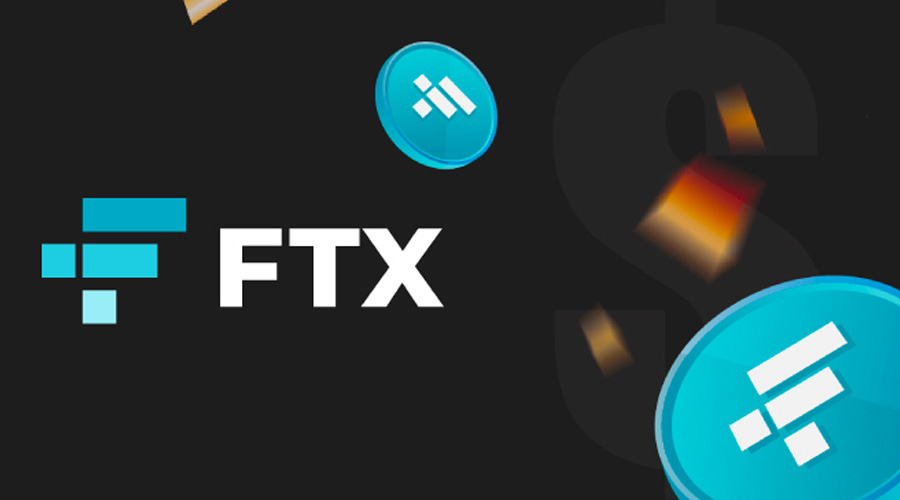MINING CONCENTRATION IN AMERICA POSES A MAJOR THREAT TO BITCOIN
Cryptocurrency bitcoin mining is an integral part of the digital financial landscape, but its concentration in specific regions.

Cryptocurrency bitcoin mining has become a significant player in the world of digital finance. As the demand for cryptocurrencies like Bitcoin continues to rise, so does the importance of understanding the various aspects of mining, including mining machines, software, sites, calculators, apps, rigs, and the broader cryptocurrency mining landscape. However, there is a growing concern in the cryptocurrency community about the concentration of mining operations in America and how this poses a major threat to Bitcoin. In this comprehensive guide, we will explore the world of cryptocurrency mining and its implications on the most popular digital currency, Bitcoin.
Cryptocurrency Mining Machine
Cryptocurrency mining machine begins with the hardware. Mining machines, also known as mining rigs or miners, play a crucial role in the process. These machines are designed to solve complex mathematical algorithms that validate and secure transactions on the blockchain. The mining machine's processing power determines its mining efficiency. It's essential to choose a powerful and energy-efficient mining machine to maximize profits and minimize energy costs.
There are various types of mining machines, each with its own specifications and capabilities. Some popular mining machine manufacturers include Bitmain, MicroBT, and Canaan. These machines are equipped with powerful Application-Specific Integrated Circuits (ASICs) designed for specific cryptocurrencies. It's important to research and select the right mining machine based on your mining goals and the specific cryptocurrency you wish to mine.
Crypto Mining Software
Crypto mining software acts as the interface between the mining machine and the blockchain network. It facilitates the mining process by connecting to the network, receiving new transactions, and validating them. The software also monitors the mining hardware's performance and helps you adjust settings to optimize your mining operation.
There are several mining software options available, both for beginners and experienced miners. Some popular choices include CGMiner, BFGMiner, and NiceHash. Before selecting mining software, it's essential to consider factors like compatibility with your hardware, user-friendliness, and the cryptocurrency you intend to mine.
Crypto Mining Sites
Crypto mining requires access to a mining pool or site. Mining sites are platforms where miners combine their computational power to increase their chances of solving complex mathematical problems and earning rewards. Joining a mining pool is essential for small-scale miners, as it allows them to receive more consistent and predictable payouts.
Some of the well-known mining pools include Slush Pool, F2Pool, and Antpool. When choosing a mining site, factors such as the pool's reputation, fee structure, and the cryptocurrency it supports should be considered. Additionally, ensure the site is secure and reliable to protect your earnings.
Crypto Mining Calculator
A crypto mining calculator is an essential tool that helps miners estimate their potential earnings and expenses. It takes into account factors such as the mining machine's hashrate, energy costs, and the current difficulty level of the crypto mining calculator being mined. Using a mining calculator can assist miners in making informed decisions regarding their mining operation.
Various websites and applications offer mining calculators for different cryptocurrencies. By inputting specific parameters, such as your mining machine's power consumption and electricity cost, you can determine your expected profits and decide whether the venture is financially viable.
Bitcoins Mining App
Mining apps, also known as mobile mining apps, are software applications designed for smartphones and tablets. These apps allow users to participate in cryptocurrency mining using the processing power of their mobile devices. However, it's important to note that mobile mining is typically less profitable compared to traditional mining due to the limited processing power of mobile devices.
Some popular Bitcoin mining apps include EasyMiner and Bitcoin Miner. These apps offer a simplified mining experience for those who want to dip their toes into cryptocurrency mining without investing in expensive hardware. It's crucial to manage your expectations and understand that mobile mining is unlikely to generate significant profits.
Cryptocoin Mining Rig
A cryptocoin mining rig is a dedicated setup designed for large-scale cryptocoin mining rig operations. Rigs consist of multiple high-performance mining machines interconnected to maximize computational power. These setups are often used by professional miners and mining farms to mine cryptocurrencies on a large scale.
Building a mining rig requires careful planning and investment in both hardware and infrastructure. The components typically include multiple mining machines, cooling systems, and power supply units. Cryptocoin mining rigs are designed to handle the immense computational requirements of mining and are usually optimized for specific cryptocurrencies.
Cryptocurrency Mining
Cryptocurrency mining is the process by which new digital currencies are created and transactions are verified and added to the blockchain. Miners compete to solve complex mathematical puzzles, with the first to solve the puzzle receiving a reward in the form of newly created coins and transaction fees. This process not only secures the network but also ensures the decentralization and transparency of blockchain technology.
Mining is an essential component of the cryptocurrency ecosystem, as it maintains the integrity and functionality of the blockchain. Bitcoin and many other cryptocurrencies rely on miners to validate and record transactions, making it a critical aspect of the digital economy.
Crypto Mining Apps
Crypto mining apps are software programs designed for personal computers, laptops, or mobile devices. They allow individuals to mine cryptocurrencies without the need for specialized mining hardware. Crypto mining apps are user-friendly and provide a simplified way for newcomers to enter the world of cryptocurrency mining.
Popular crypto mining apps include Honeyminer and Cudo Miner. These apps are designed to be accessible to a wide audience, making it easy for anyone with a computer to start mining cryptocurrencies. However, it's important to note that the profitability of mining using these apps may be limited due to the lower processing power of standard devices.
Miners for Crypto
Miners, in the context of cryptocurrency, refer to both the individuals who engage in the process of cryptocurrency mining and the mining hardware itself. Miners play a crucial role in securing the network, processing transactions, and ensuring the overall functionality of blockchain technology.
As cryptocurrency mining has evolved, it has given rise to different types of miners. These include:
- Individual Miners: These are individuals who mine cryptocurrencies using their personal mining machines or devices.
- Mining Pools: Mining pools are groups of miners who combine their computational power to increase their chances of earning rewards. They share the rewards based on the contributed computing power.
- Mining Farms: Mining farms are large-scale operations that consist of numerous mining machines or rigs. They are often set up in regions with cheap electricity to maximize profitability.
- Cloud Mining: Cloud mining involves renting computing power from a cloud-based provider. This option is popular among those who want to participate in mining without dealing with hardware setup and maintenance.
The Threat of Mining Concentration in America to Bitcoin
Bitcoin, the first and most well-known miners for crypto, relies on a decentralized network of miners to maintain its security and functionality. However, there is a growing concern regarding the concentration of mining operations in America and its potential impact on the cryptocurrency's decentralization and resilience.
- Geographic Concentration: The United States has become a significant player in the global cryptocurrency mining landscape. With access to abundant sources of energy and a growing number of mining farms, it has attracted both individual miners and large-scale operations. While this concentration can provide economic benefits, it also poses risks.
- Regulatory Challenges: The concentration of mining operations in the United States exposes Bitcoin to regulatory challenges. Government authorities may exert more control and oversight over these operations, potentially impacting the network's decentralized nature.
- Energy Consumption: Cryptocurrency mining, especially in the form of mining farms, consumes a significant amount of energy. Concentrated mining operations in regions with cheap electricity may put strain on local power grids and environmental resources.
- Network Security: Bitcoin's security relies on the decentralized nature of its miners. If mining operations become highly concentrated in a single region, the network may become more vulnerable to attacks or disruptions in that specific area.
- Economic Impact: The economic impact of mining concentration in America can have far-reaching effects on the cryptocurrency market. Price fluctuations and volatility may result from changes in mining dynamics.
Mitigating the Threat
To mitigate the threat posed by mining concentration in America, it is essential to consider the following measures:
- Encourage Decentralization: The cryptocurrency community should promote decentralization and encourage miners to be located in diverse geographical regions. This helps ensure the network's resilience and security.
- Energy Efficiency: Miners can focus on adopting energy-efficient mining practices, including using renewable energy sources, to reduce the environmental impact and mitigate the strain on local power grids.
- Regulatory Engagement: Engage in constructive dialogues with regulatory authorities to establish clear guidelines and regulations that support cryptocurrency mining while maintaining the decentralized nature of blockchain networks.
- Support Network Upgrades: Support upgrades and improvements to the Bitcoin network, such as the transition to Proof of Stake (PoS) consensus mechanisms, which can reduce the environmental impact and further decentralize the network.
Cryptocurrency mining is a complex and dynamic ecosystem with various components, including mining machines, software, sites, calculators, apps, rigs, and miners. It plays a crucial role in maintaining the security and functionality of blockchain networks, with Bitcoin being the most notable example.
However, the concentration of mining operations in America poses a significant threat to Bitcoin's decentralized nature and resilience. To address this challenge, it is crucial for the cryptocurrency community, miners, and regulatory authorities to work together to ensure the continued success of Bitcoin and the broader cryptocurrency market.
As the cryptocurrency landscape continues to evolve, it is essential to stay informed, adapt to changing dynamics, and take proactive measures to ensure the long-term sustainability and decentralization of crypto mining sites networks. By doing so, we can help secure the future of digital finance and the innovative technologies that underpin it.
What's Your Reaction?
















